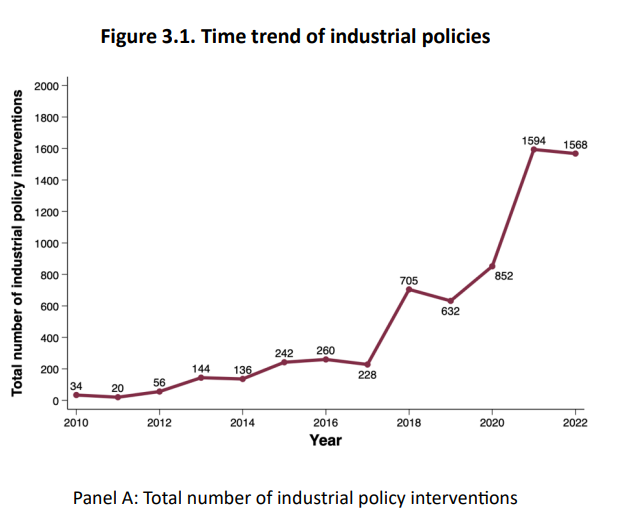Much has been written recently and spoken about threats to democracy. How about threats to capitalism and our free market economies by events taking place around the world? This essay addresses one of these threats.
A free-market economy is by definition relatively unconstrained and unfettered by government policy. Sure, the government needs to provide for national defense and other common needs, and certain infrastructure is best provided by or with government funding, but the market itself, through the mechanism of supply and demand, is considered the best determinant of how economic growth proceeds. Capitalism works best when the government is a supportive bystander, which allows the economy to adjust to an equilibrium without intervention by government policies.
The opposite of a free-market economy would be one wherein the government takes an active role in planning how the growth of the economy develops and how this growth is distributed. In a pure socialist economy, the government plans for all of this. In a hybrid model, currently gaining favor around the world (see chart), the government establishes an industrial policy to encourage certain kinds of growth in certain sectors and in specific locations.
In East Asia, and in China until recently, the government had been successful in planning and executing rapid economic growth. There was considerable interest around the world about these past successes and how such planning might be more broadly applied. As described in a 2023 working paper by the National Bureau of Economic Research (NBER) called The New Economics of Industrial Policy.
…the East Asian miracle constituted not only one of the most important episodes of modern economic development, (and) also remains the focal point of debates surrounding the efficacy and desirability of industrial policy.” The Financial Times claims, “Today the most striking new industrial policy is that of the Biden Administration”.
As an example, the US government decided that Arizona should have fabrication plants to produce leading edge semiconductors, and they should be made by a Taiwanese company. That may indeed work well, but again it was not the market that made that decision. It was US industrial policy.
Somewhere between a planned economy and an unfettered capitalist free-market is the sweet spot, but it is a tricky matter finding that sweet spot. As the Financial Times recently said,
Industrial policy works if it changes the structure of the economy in a beneficial direction. Unfortunately, there are well known reasons why the attempt could fail.
These include:
· The capture of the policy levers by special interests
· Lack of good information can mean bad policy decisions
· The government is notorious for not being able to pick winners
In a free market economy, the “winners” and the “losers” are clear. The winners survive, and the losers are driven out of business. In an industrial policy setting, it is not so evident. The NBER says “governments cannot pick winners. The ultimate question is not just about picking winners, but does government have the ability to let ‘losers’ go?” In 2009, the US Dept of Energy guaranteed a loan to solar company Solyndra, which failed miserably. But one year later, a similar loan guarantee to Tesla let the company avert failure, and it became the success it is today.
Perhaps the US can avoid errors such as these, but getting the industrial policy right is a heavy lift. Stay tuned.
Sources
- The New Economics of Industrial Policy Réka Juhász, Nathan J. Lane, and Dani Rodrik NBER Working Paper No. 31538 August 2023, Revised August 2023
- Financial Times, June 19, 2024, Martin Wolfe, Industrial Policy is a Tricky Business
Baldwin Management LLC. (“Baldwin”) is a registered investment adviser that does not suggest a certain level of skill or training. The views and opinions expressed in this newsletter are those of Baldwin professionals and may change at any time without prior notification. There is no guarantee that the objectives of any investment program will be achieved. Any strategies or securities discussed is not a recommendation to invest in such strategies or to purchase or sell securities. Investing involves the risk of partial or total loss that investors should be prepared to bear. Past performance is not a guarantee of future results.. The value of investments may be worth more or less than their original cost when sold. Baldwin obtains information from third-party vendors believed to be reliable; however, the accuracy of such information is not guaranteed. For additional information regarding Baldwin’s business practices, registration status and important disclosures, please click on the following link and type our name in the space provided IAPD – Investment Adviser Public Disclosure – Homepage (sec.gov)
Richard K. May, Managing Director (RKM), Business Development
Richard founded his financial advisory firm in 1980, which was one of the early fee-only advisors in the industry. He received his B.A. from Princeton University and his M.B.A. from the University of Michigan.
In 2007, Richard founded the West Chester LLC, a private equity company that promoted and funded business start-ups and public projects in the Borough of West Chester. In 2011, he co-founded the Uptown! Entertainment Alliance and the Uptown! Bravo Theatre, LLC. Together they purchased and rehabilitated the National Guard Armory, and then opened the Uptown! Knauer Performing Arts Center in 2016. Richard also serves on the board of Chester County OIC and is currently working on starting a live performance venue in Kennett Square, PA for 2025.


